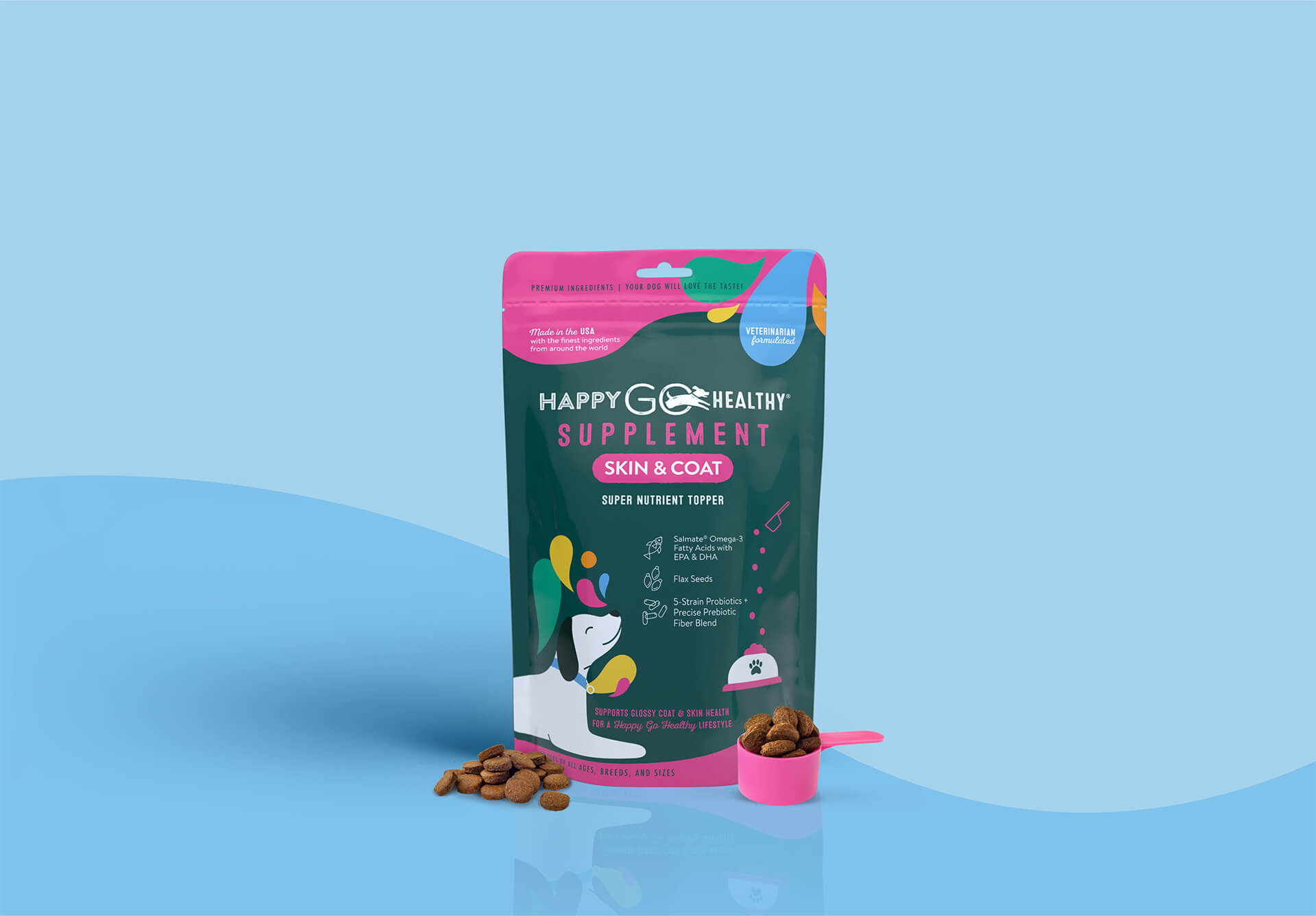First dog supplement range with immune health at its core.OUR SUPPLEMENTS
Showing all 4 results
-
Daily Wellness Supplement
Focused on holistic wellbeing to help your dog beam throughout the day.
Our Daily Wellness Supplement has no artificial fillers and is packed with fresh ingredients, such as Probiotics together with Prebiotics, protected Wild Salmon Oil (Salmate®), Turmeric, Organic Icelandic Seaweed, and Fruits & Veggies.
*Formulated for dogs of all breeds, ages, & sizes -
Hip & Joint Supplement
Dedicated to supporting supple joints & strong bones for your dog to reach new heights!
Our Hip & Joint Supplement has no artificial fillers and is packed with fresh ingredients, such as Probiotics together with Prebiotics, protected Wild Salmon Oil (Salmate®), Organic Icelandic Seaweed, and Turmeric.
*Formulated for dogs of all breeds, ages, & sizes -
Skin & Coat Supplement
Crafted to nourish the roots so your companion shines from the inside out.
Our Skin & Coat Supplement has no artificial fillers and is packed with fresh ingredients, such as Probiotics together with Prebiotics, protected Wild Salmon Oil (Salmate®), and pure Flax Seeds.
*Formulated for dogs of all breeds, ages, & sizes -
Gut Health Supplement
Formulated for digestive support to help your companion’s immune system for optimal health.
Our Gut Health Supplement has no artificial fillers and is packed with fresh ingredients, such as Probiotics together with Prebiotics, Organic Kelp, Ginger Root, and Organic Icelandic Seaweed.
*Formulated for dogs of all breeds, ages, & sizes



